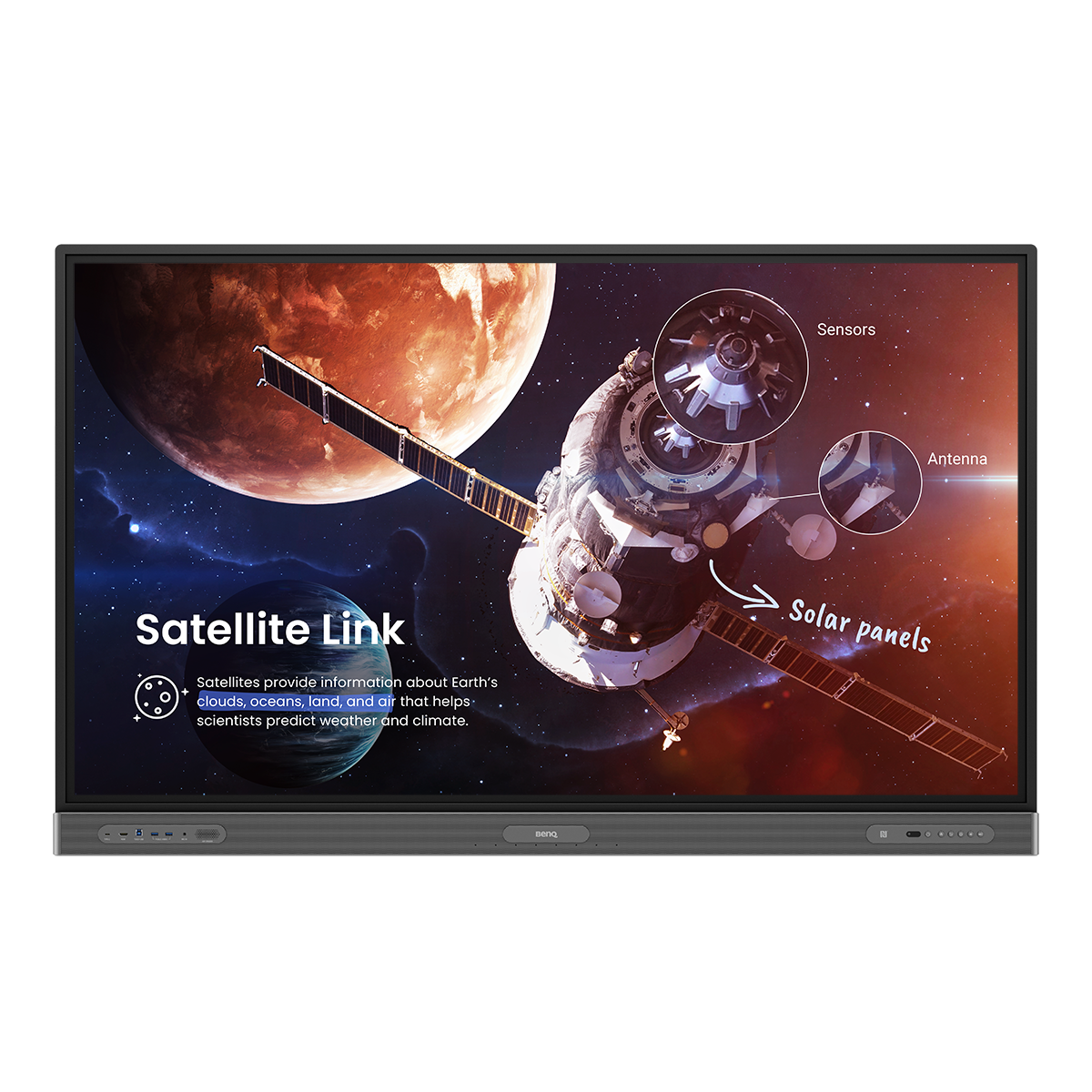As part of BenQ’s continued commitment to develop technologies designed for healthy and active learning, the new BenQ Board Pro RP03 is now the first and only smart board for classrooms with a built-in air ioniser. But what exactly is an air ioniser and how can it be used to protect student health? Below, we answer common questions and clear any confusion surrounding this new ClassroomCare® feature.
Is the air ionizer the same as an air purifier?
This is a very common misconception. Although both technologies help in purifying indoor air, they do so in very different ways.
Air purifiers are designed to capture air in enclosed spaces and use a series of filters to remove contaminants before releasing clean air back into the room. Depending on the manufacturer, these filters may include special layers such as a high-efficiency particulate air (HEPA) layer that removes fine dust and pollen, an ultraviolet (UV) layer that neutralises airborne microbes, and an activated carbon layer designed to get rid of odours.
Air ionisers, on the other hand, do not require filters, but instead, use ionisation to get rid of airborne pollutants.


How does the air ionizer on the BenQ Board work?
The BenQ Board’s built-in ioniser releases negatively charged ions into the air. These ions latch onto floating particulate matter (PM2.5 and PM10), weighing them down until they are too heavy to stay suspended in the air. This ionisation process helps decrease the amount of inhalable particulate matter in the immediate area.
Related: Find out how the BenQ Board air ioniser works.
Although effective, the air ioniser is not designed to be a standalone air filtration system, but rather a complement to your school’s existing HVAC system.


Do air ionizers kill airborne viruses?
This is another popular misconception. Although a few manufacturers may claim that this is possible, there are no conclusive studies that prove their efficacy against airborne viruses. Air ionisers are designed to decrease the number of suspended air particles. They are not meant to sanitise the air and kill airborne viruses or bacteria.
Is the air ionizer effective against particulate matter?
The BenQ Board’s air ioniser releases 300 ppm of negative ions per hour and, as per SGS testing, has been proven to reduce the amount of PM2.5 suspended in the air.
Is the air ionizer safe to use?
Yes. Although there have been concerns about air ionisers indirectly producing ozone, which, at very high levels, can be considered a lung irritant, the BenQ Board’s air ioniser produces a negligible amount, which is safe for both teachers and students.
How do you activate the BenQ Board’s air ionizer?
You can activate the ioniser through the display settings menu on your BenQ Board or remotely via the BenQ Device Management Solution (DMS). You can select among three different air ioniser modes:


Related: Learn more about BenQ DMS.
If you want to learn more about the air ioniser or other BenQ Board Pro features, contact your local BenQ sales representative for a product demo.

